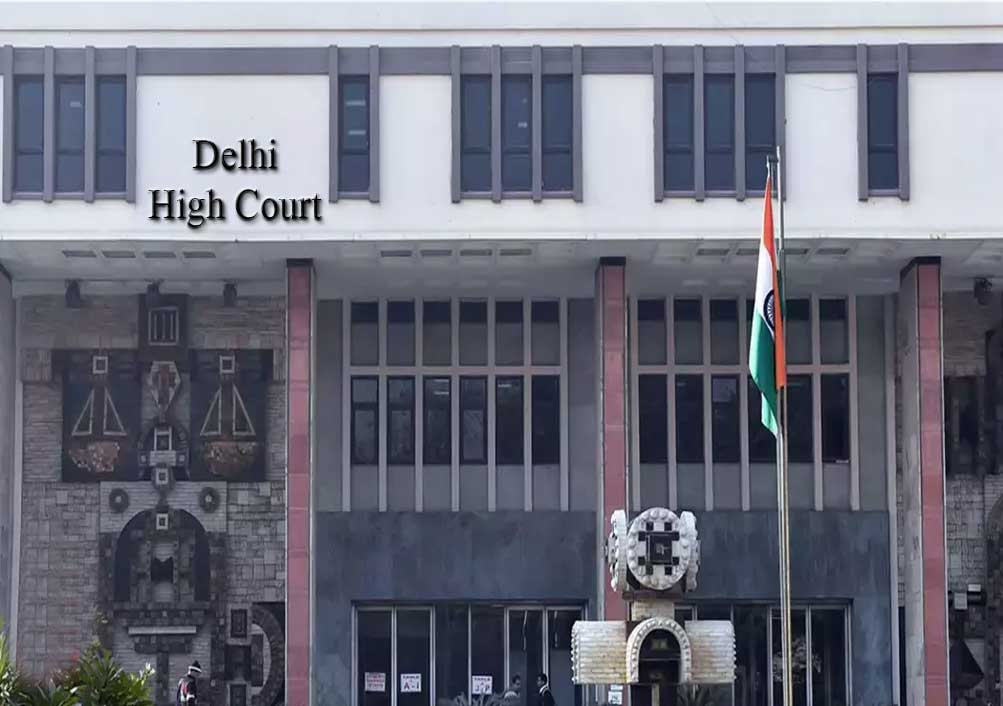In Bail Appln. 2210/2023 -DEL HC- Suicide note did not mention dowry demand but focused on alleged brainwashing of husband of deceased: Delhi High Court grants bail to sister-in-law in dowry death case
Justice Amit Sharma [31-10-2023]

Read Order: Smt. Renu Tokas V. The State (Govt. Of NCT of Delhi)
Chahat Varma
New Delhi, November 3, 2023: The Delhi High Court has granted bail to a woman in a case involving charges of dowry death, cruelty, and harassment under Sections 498A/304B/302/306/34 of the Indian Penal Code, 1860.
In summary, the case involved the death of a woman, who was found hanging from a ceiling fan in her house. The investigation revealed allegations of cruelty and harassment by her mother-in-law, father-in-law, husband, sister-in-law, brother-in-law, and cousin brother-in-law for dowry. The deceased had previously lodged a complaint with the Crime Against Women Cell regarding the harassment.
The counsel representing the applicant argued that she was the married sister-in-law of the deceased, who was residing separately in her own matrimonial home. It was contended that there was no evidence on record to establish the applicant's presence at her brother's house on the date of the incident. Furthermore, the counsel emphasized that the matrimonial discord primarily involved the deceased and her husband. Additionally, it was pointed out that, based on the suicide note, there were no allegations related to dowry demands concerning the present applicant or any other in-laws of the deceased.
The single-judge bench of Justice Amit Sharma noted that apart from an alleged CCTV footage that could not be retrieved from the DVR by the FSL, there was no other material on record to demonstrate the presence of the applicant at the scene. The bench also pointed out that the suicide note, which was being relied upon by the prosecution, did not mention any allegation of dowry demand. The note primarily blamed the applicant and the mother-in-law of the deceased for brainwashing the husband of the deceased.
The bench opined that in the present case, the applicant was in a similar position as the co-accused, Rajbala (mother-in-law), who had been granted bail by the trial court. It was noted that the trial court had extensively analysed the facts and material of the case before granting bail to Rajbala.
The bench reiterated that bail is the rule and jail is the exception. At the bail stage, the court does not need to conduct a detailed analysis of the evidence on record, as that is a matter for trial. It was noted that the argument presented by the state, suggesting that Rajbala had been granted bail solely because of her responsibility for the minor children, was determined to be incorrect. The bench held that while the care of the minor children was a factor considered by the trial court when granting bail to Rajbala, it was not the sole basis for the decision.
The bench observed that the nominal roll received from the concerned Jail Superintendent had reflected that the applicant had been in judicial custody for 3 years, 11 months, and 14 days. It was also noted that the applicant had been released on interim bail following HPC guidelines and had surrendered as required without misusing the granted liberty. Furthermore, out of the 37 witnesses cited by the prosecution, only 9 had been examined at that time, indicating that the trial was likely to take a considerable amount of time.
Thus, considering the totality of the circumstances, the court granted bail to the applicant.
Sign up for our weekly newsletter to stay up to date on our product, events featured blog, special offer and all of the exciting things that take place here at Legitquest.




Add a Comment